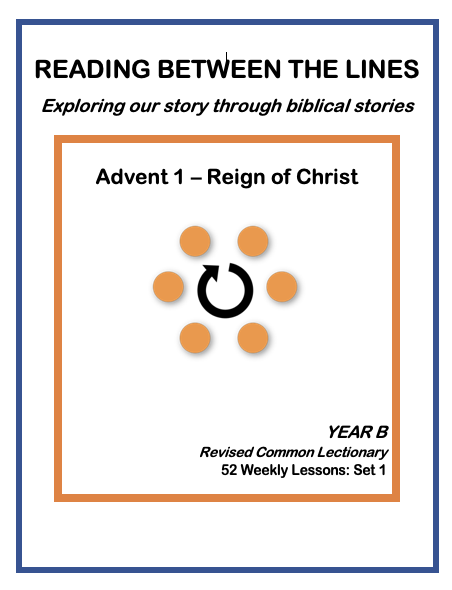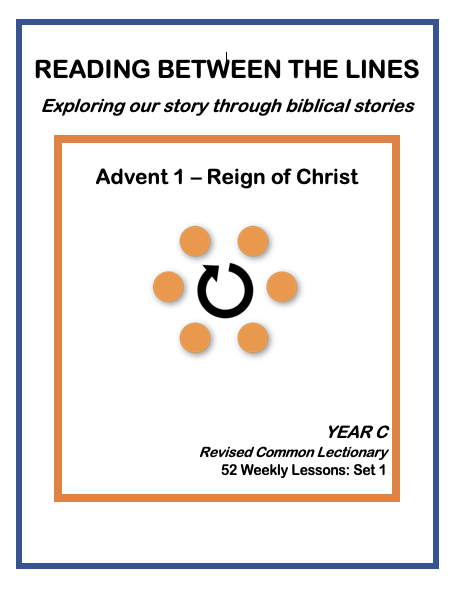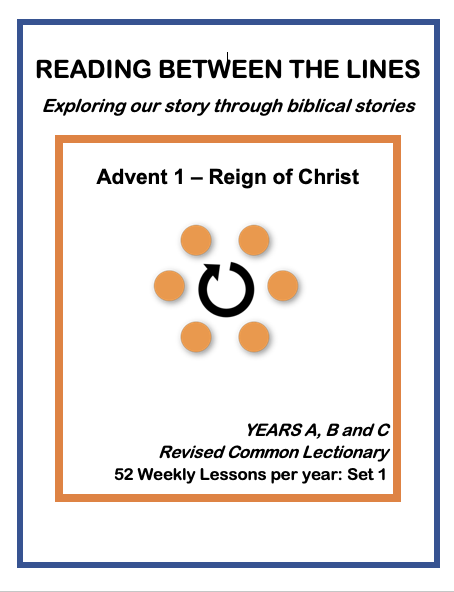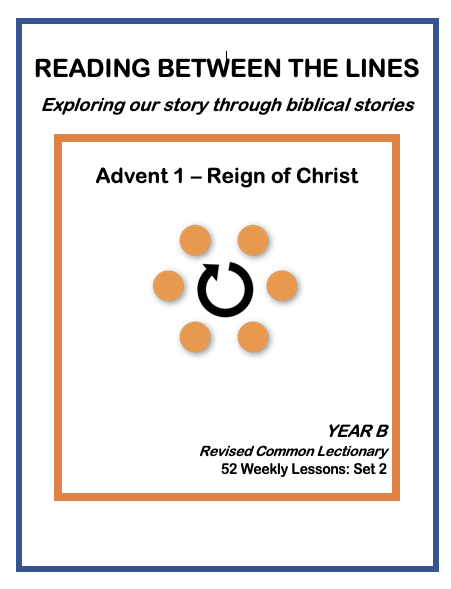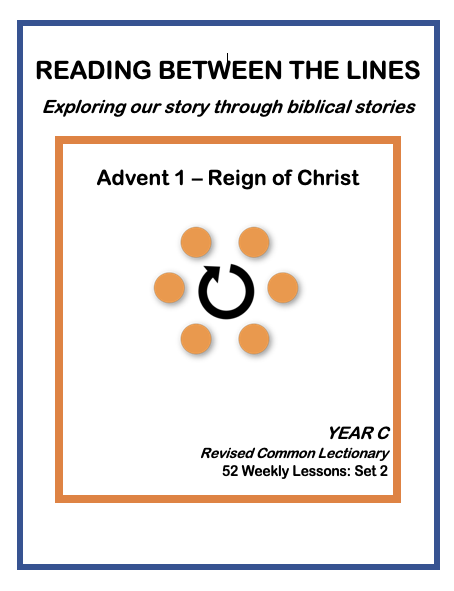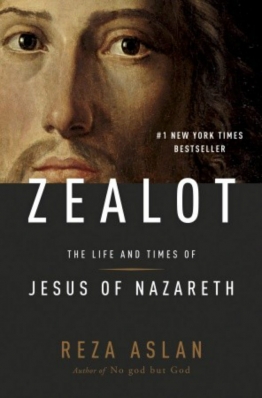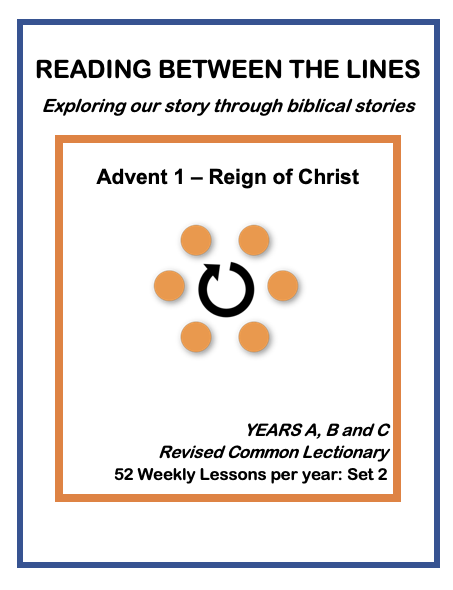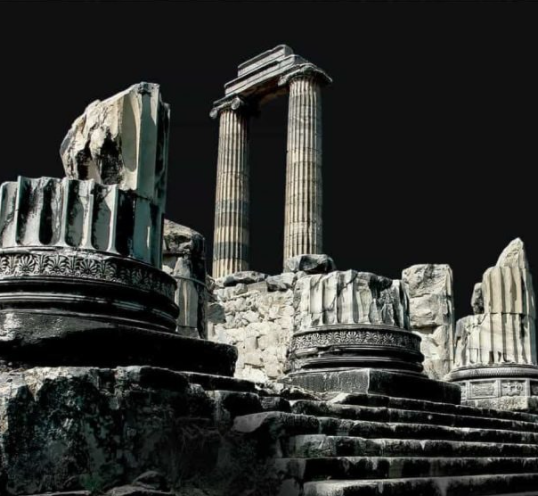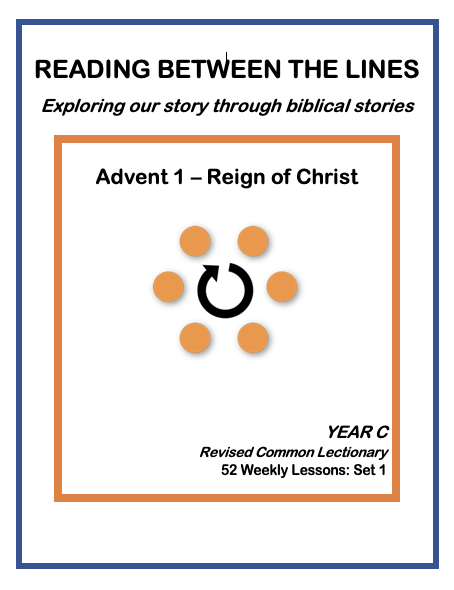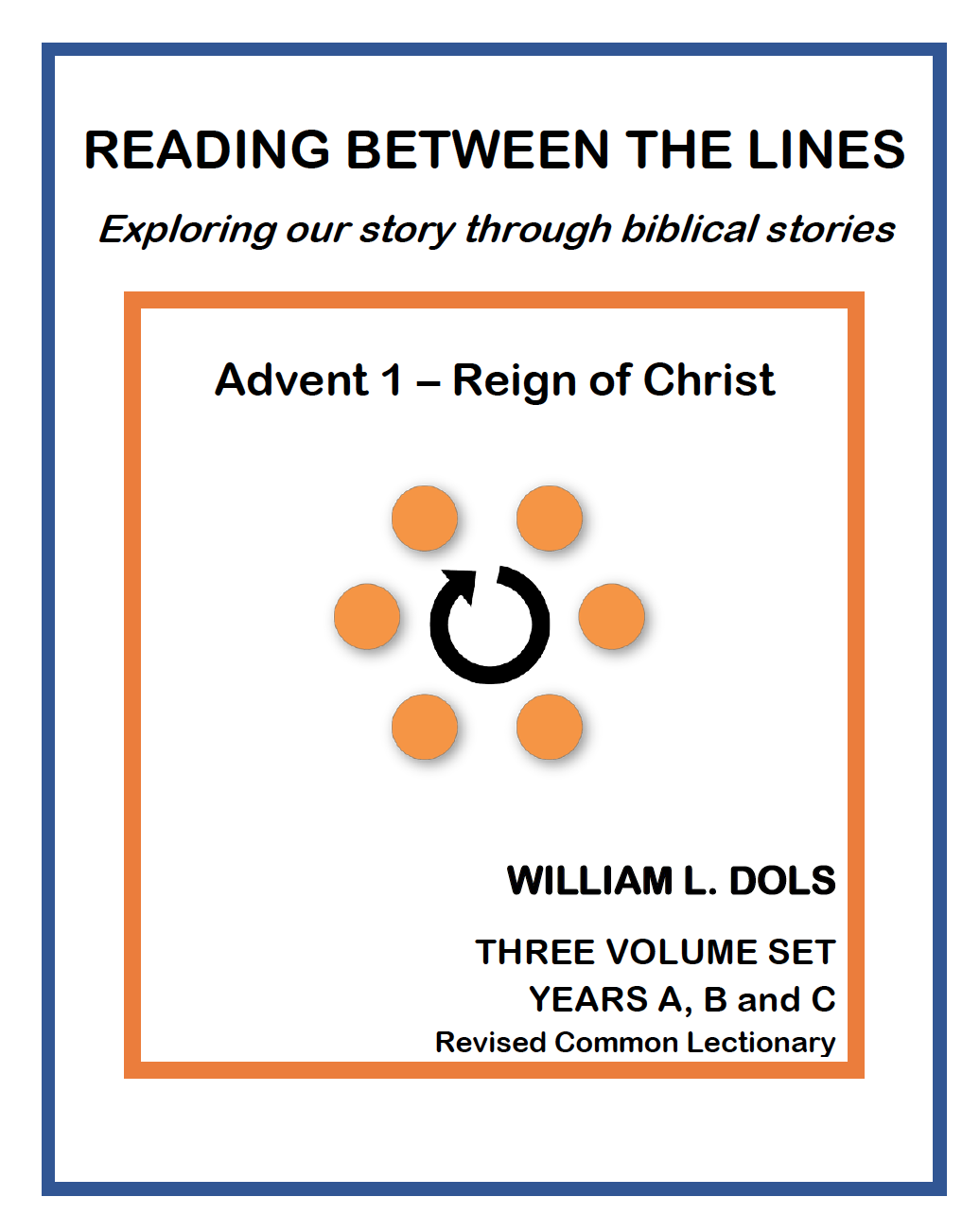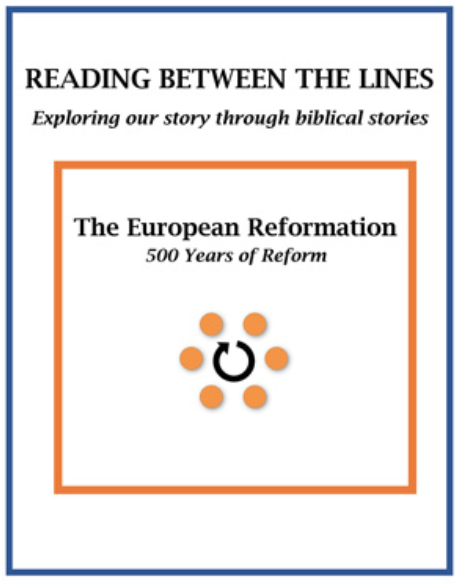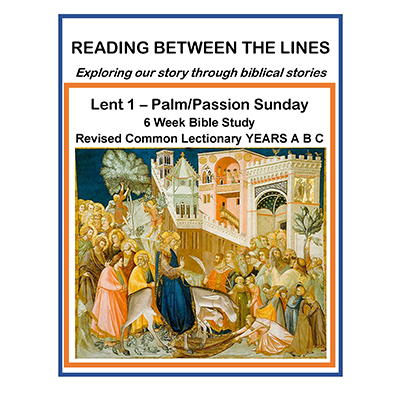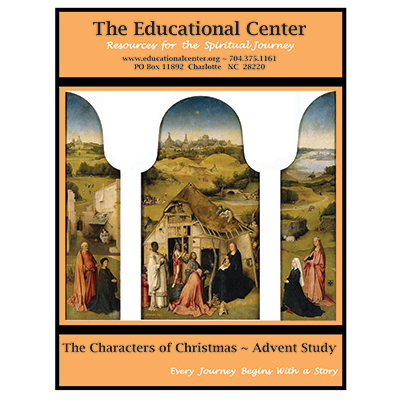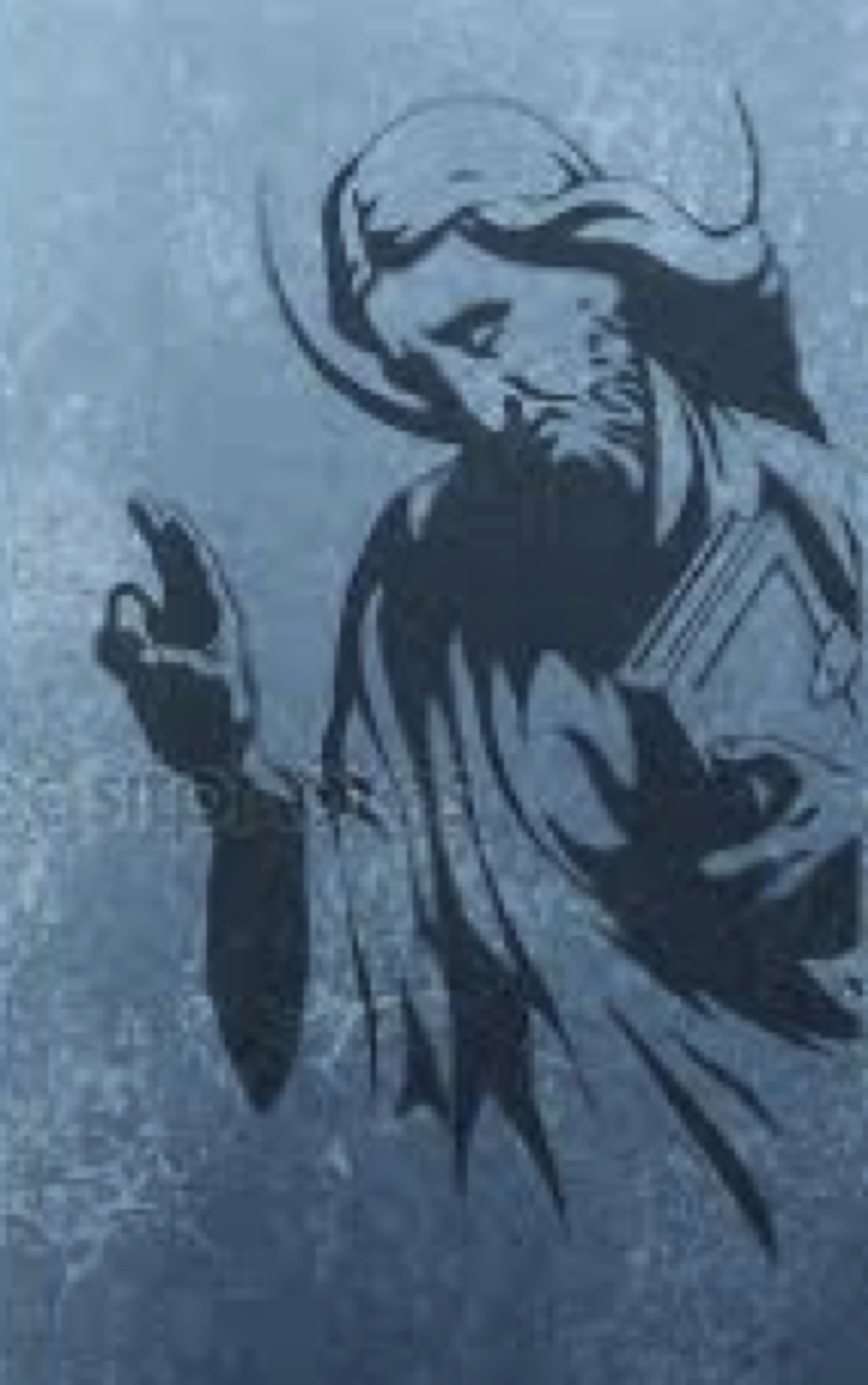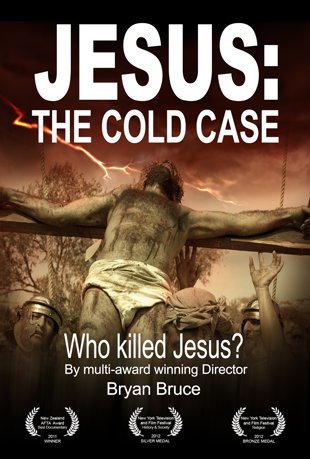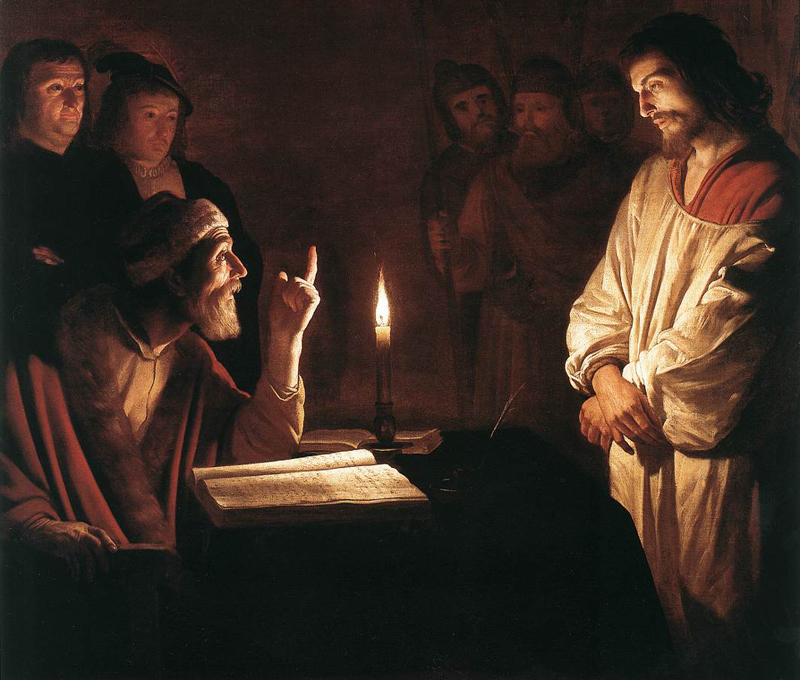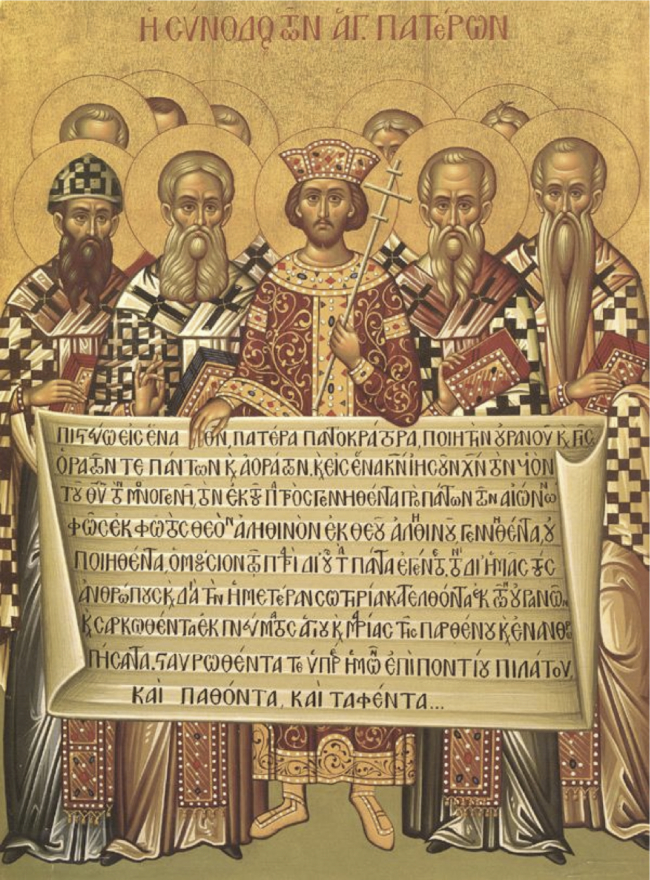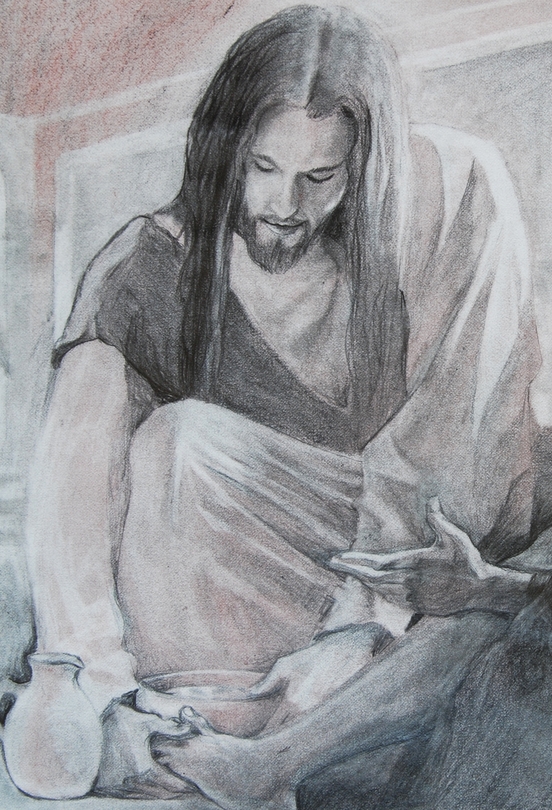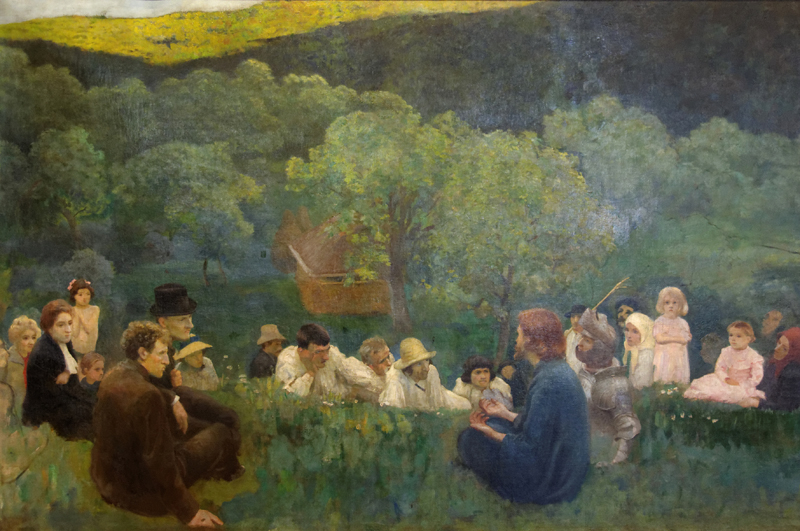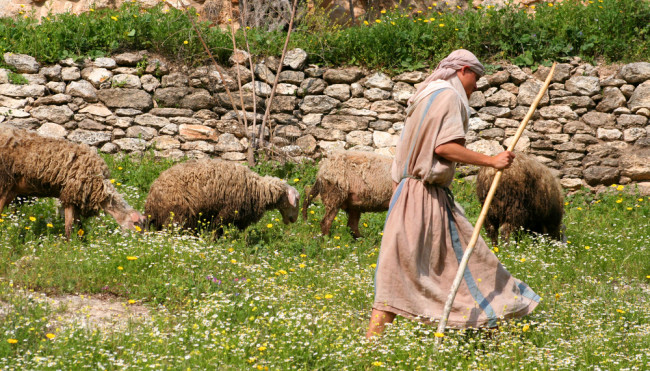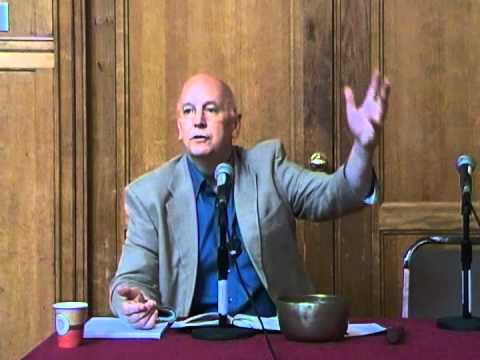Year B - Set 1
This RBTL resource follows the Revised Common Lectionary with text selections for Year B - Set 1. There are 52 lessons the year.
Year C - Set 1
This RBTL resource follows the Revised Common Lectionary with text selections for Year C - Set 1. There are 52 lessons for each volume/year.
Years A, B and C - Set 1
This RBTL resource follows the Revised Common Lectionary with text selections for Years A, B and C - Set 1. There are 52 lessons for each volume/year.
Year B - Set 2
This RBTL resource follows the Revised Common Lectionary with text selections for Year B - Set 2. There are 52 lessons the year.
Year C - Set 2
This RBTL resource follows the Revised Common Lectionary with text selections for Year C - Set 2. There are 52 lessons for each volume/year.
The material we are exploring is controversial; the subject matter is often tied to deeply held beliefs. The intention of this study guide is not to change your mind but to challenge your beliefs.
Years A, B and C - Set 2
This RBTL resource follows the Revised Common Lectionary with text selections for Years A, B and C - Set 2. There are 52 lessons for each volume/year.
Join preeminent New Testament scholars Marcus Borg and John Dominic Crossan on location in Turkey as they trace the Apostle Paul’s footsteps throughout the Roman Empire.
From the Greek word, hypocritis, the hypocrite is a ‘play actor.’ While misfortune is befalling us on a massive scale these days, true tragedy is the result of the hypocrite who has the choice to decide to act otherwise.
Year A - Advent 1: The Reign of Christ by William L. Dols
This resource follows the Revised Common Lectionary with text selections for Year A. There are 53 lessons for each volume offering users a bonus lesson for each of the three lectionary years.
Year C - Advent 1: The Reign of Christ by William L. Dols
This resource follows the Revised Common Lectionary with text selections for Year C. There are 53 lessons for each volume offering users a bonus lesson for each of the three lectionary years.
Reading Between The Lines: Lessons from the Revised Common Lectionary Set of Years A, B and C – DOLS
Years A, B and C - Advent 1: The Reign of Christ by William L. Dols
This resource follows the Revised Common Lectionary with text selections for Years A, B and C. There are 53 lessons for each volume offering users a bonus lesson for each of the three lectionary years.
PDF Version
Reading Between The Lines (RBTL) of the European Reformation is an opportunity to examine some of the original documents of key leaders of the movement and to explore the events that propelled this period of dramatic realignment.
Year A
This 6 week study includes Lent 1 – Palm/Passion Sunday and follows the Revised Common Lectionary (YEAR A, B or C) text selections.
5 Part Advent/Christmas Study Series
When was the last time you followed a star? Talked to an angel? Took an outrageous chance? Ran for your life? Mary, Joseph, the Shepherds and Magi did! Might their stories be inviting you to take a chance on transformation?
The Problem with Blessings and Curses
“Have a blest day?” What in this world does that mean? Better luck or good karma, instead of bad? In the ancient world, denoting someone as “blest” was a way of expressing a deity’s special favor towards that person. If that sounds quaint, there are still plenty of people today who believe they can curry favor or improve the odds of achieving more blessings than curses; while politicians routinely conclude their speeches by invoking the Almighty to bless the good ‘ol USA. There’s just one problem. It doesn’t work.
In May 2017, people from all over the world will gather in Portland, Oregon to share knowledge and wisdom, learn from each other, celebrate, be inspired, and find the tools needed to create and enliven local movements within our communities. Together we will explore sacred oneness, Christ consciousness, eco-spirituality, social justice and the way of universal and personal transformation that honors the Divine in all.
Uppity Women of the Bible is a four volume DVD-based series featuring Hebrew Bible professor Dr. Lisa Wolfe. Combining careful scholarship with humor and fresh insights, Dr. Wolfe presents just what your group needs for lively, thoughtful discussion of Ruth, The Song of Songs, Esther and Judith.
A Spiritual Path for Personal Transformation
An aging Vietnam vet suffering from PTSD returns to Da Nang after 50 years in order to try to do something for those still afflicted generations later by the lingering toxic affects of Agent Orange. His nagging conscience leads to a redemptive act of self-healing and a common good. Spirituality is often an amorphous and bandied about term that too often connotes the merely religious type, as somehow distinct from those who are not. Instead, I appreciate something as equally shared as it is often neglected, namely the human conscience and our sometimes-belated conscious awareness of it.
In his native New Zealand Bryan Bruce writes, directs and hosts the internationally successful crime show THE INVESTIGATOR in which he re- examines unsolved crimes In 2010 he decided to apply his criminal investigative methods to the ultimate cold case : Who Killed Jesus and Why?
Satire and Blasphemy in the Teachings of a Galilean Sage
Radical religious extremists with a distorted view of Islam commit horrific acts of terror, executing the staff of a small satirical French publication. The satirists had dared to depict the Prophet Mohammed in cartoon caricature; all the while lampooning those misbegotten adherents who in turn regard such irreverent acts as blasphemous. The Western world reacts with outrage and defiance to such an affront. World leaders join a million person protest and unity march through the streets of Paris, chanting “Je Suis Charlie,” in defense of freedom of speech, and on behalf of the publication’s name. While a clear distinction might be drawn between the use of words and the vehement reactions they may incite, more profound underlying questions remain. While anti-blasphemy laws are common in Muslim countries, countless other "secular" countries have laws against the defamation of religion, as well. Once the dust settles and more thoughtful discussion ensues, one might ask what constitutes the differences between hate speech and freedom of expression? This commentary consider s esus' use of what was deemed blasphemous satire, it's intended purpose, and well-known consequences.
The challenge for a progressive Christian who has moved beyond such notions as virgin births and gods disguised in human form come to save us from ourselves is to remember that it is as much a historical development, as it is a theological one. That is, the attribution of a “Christ” title accorded a very human Jesus constitutes the imaginations -- if not machinations -- of an early Church; consisting of very human, second-generation followers of a 1st century Galilean peasant sage and itinerant preacher. And who all but drowned out the authentic voice of the one who was once born and dwelt among humankind. Such an assertion is simply based on the fact the historical Jesus never self-identified as the “anointed one,” the Christ. As such, if one were to remove the Christ-title from the various birth narratives of those secondary traditions of this religious movement, what would remain of the “Christmas story” that has become as prevalently assumed, as it has been unexamined? If we took the Christ out of Christmas, what might remain of the voice of one who was born and dwelt among us? You can read more here.
An Open-Ended “Creed” for a Progressive Christian
I have often said so-called “progressive Christianity” is a notion forever in search of its own elusive definition; and that’s as good a way of explaining it as we may be able to find. We live in a post-modern world that considers the age of Enlightenment to be a post-facto reality. As such, “progressive” thinking in an age of Reason has pushed the boundaries of nearly every facet of life, except one: those ‘traditional’ or ‘orthodox’ beliefs, based on certain creeds, doctrines and dogma that still dominate what it presumably means to be “Christian.” It hardly needs to be said that it is also why so many one-time believers have outgrown their one-time faith. Calling them merely “lapsed” is misleading. So much has elapsed in the world we have all come to know and take for granted, that the once-dominant Church -- -- despite all its denominational varieties -- has fast become a post-modern relic. Yet any critical examination of how Christian scriptures developed and how the history of the tradition evolved will quickly demonstrate how it has always been in a constant state of flux. Or, if you like, “progression.” It was only when it stopped and got stuck that we traded in the tent for a temple, and snuffed the life out of a movement that is progressive by its very nature. What then would constitute an honest statement of belief for at least this "progressive Christian?"
The idea of a second coming of Christ is a mystery, if not explicitly controversial. Jesus’ followers apparently believed he would return during their lifetime after he was crucified. When that didn’t happen, later followers gradually changed the belief into an indefinite “someday.” After two thousand years of waiting, most Christians no longer look for it to happen in their lifetimes and acknowledge that Jesus may have been speaking metaphorically about his return. It is just as likely that those words were put into Jesus’ mouth by the gospel writers themselves. Wishful thinking?
Series on the Teachings of a Galilean Sage: The Sermon on the Mount, PART II
The social world order seems to erupt in chaos and violence on a regular basis these days. Regimes hold on to political power at all costs, while those who are more often than not economically oppressed demonstrate and confront government forces with little more than their willingness to stand in opposition. If this all sounds like pure political commentary, consider this: The socio-political landscape in first century Palestine, CE, wasn’t much different. The practical means by which the imbalance of power was wielded by some over others may have been rather primitive by today’s technological standards; but the end game was the same. The itinerant Jewish peasant teacher and sage who would long be remembered as uttering such impractical non-sense as “turn the other cheek” and “love your enemy,” was the same historical figure that was executed as an insurrectionist, not a “resurrectionist.” As I’ve put it bluntly elsewhere, Jesus didn’t die for our sins, but because of them. But the historical Jesus’s message deviated so radically from the “you have heard it said, but I say to you” literary device employed that it constituted a world view that did not simply turn everything upside down; but attempted to right what becomes a distorted “default” assumption of human nature that too easily concedes it is only human instinct to regard ourselves as prejudicial and self-centered creeps. Jesus’ teachings to “turn the other cheek” and “love one’s enemies” is an invitation to an inward journey of the self; and a call to reclaim our true huma n nature.
This is the web version of a Jewish history project I prepared a few years ago, "Timelines in Jewish History, 1000 BCE - 1925 CE, with Parallel Timelines in Relevant General History."
Many Christians today are increasingly unsure about how to “take” the Bible. To borrow from the childhood game “Mother, May I?” I’d suggest we take two giant steps back. We need to move ourselves back to challenge two assumptions that block our comfort with the Holy Bible.
The Year of Mark
The political, social, spiritual, and economic history of most of the Western world has been defined by the belief articulated in the literal application of John’s gospel to personal and social piety. If Christianity is to survive with any relevance to postmodern, twenty-first century realities, the theology of condemnation and substitutionary atonement associated with the fourth gospel has to be scrapped. Not only is the future of Christianity at stake. This theology threatens the further evolution of human consciousness, and life as humanity has known it thus far on Planet Earth.
A Commentary for Thanksgiving in an Age of Anxiety
American retailers have essentially pre-announced that the annual Thanksgiving observance -- when we presumably pause to gratefully remember everything we have -- has been cancelled so bargain shoppers can get an even earlier jump-start on their holiday shopping for all the things we don’t have yet. Meanwhile, halfway around the world a typhoon of record proportion hit landfall only a few weeks ago; nearly wiping an island nation off the face of the earth, and leaving those who survived with virtually nothing. Then last week an unseasonable swarm of twisters flattened whole towns across the Midwest. By comparison, it all makes the plight of those first pilgrims facing the harsh realities of their first Thanksgiving in a brave new world look like a walk in the park. And, all the while, the airwaves and media have been filled with docu-dramas and documentaries commemorating the half-century mark of those events that shattered an age of relative innocence for those of us old enough to remember it; ushering in an age of extraordinary upheaval and anxiety, starting with what social critics and historians alike attribute to the assassination of JFK. Juxtaposed and taken together, these events represent a seeming un-reality that hasn’t really abated much in the last fifty years. We live in an age of anxiety. Jesus masterfully taught in the philosophical tradition known as Jewish cynicism, with such parabolic tales and quaint-sounding imagery as the “lilies of the field.” And he did so at a time and age that – while seemingly ancient to our modern way of thinking – may not have been all that different from our own anxious age. Consider then our fretful, misbegotten ways, and the wild lilies of the fields.
THE DAY OF DIALOGUE BETWEEN DR ALAN WALLACE AND LAURENCE FREEMAN OSB EXPLORED THE THEME "SALVATION OR ENLIGHTENMENT'

